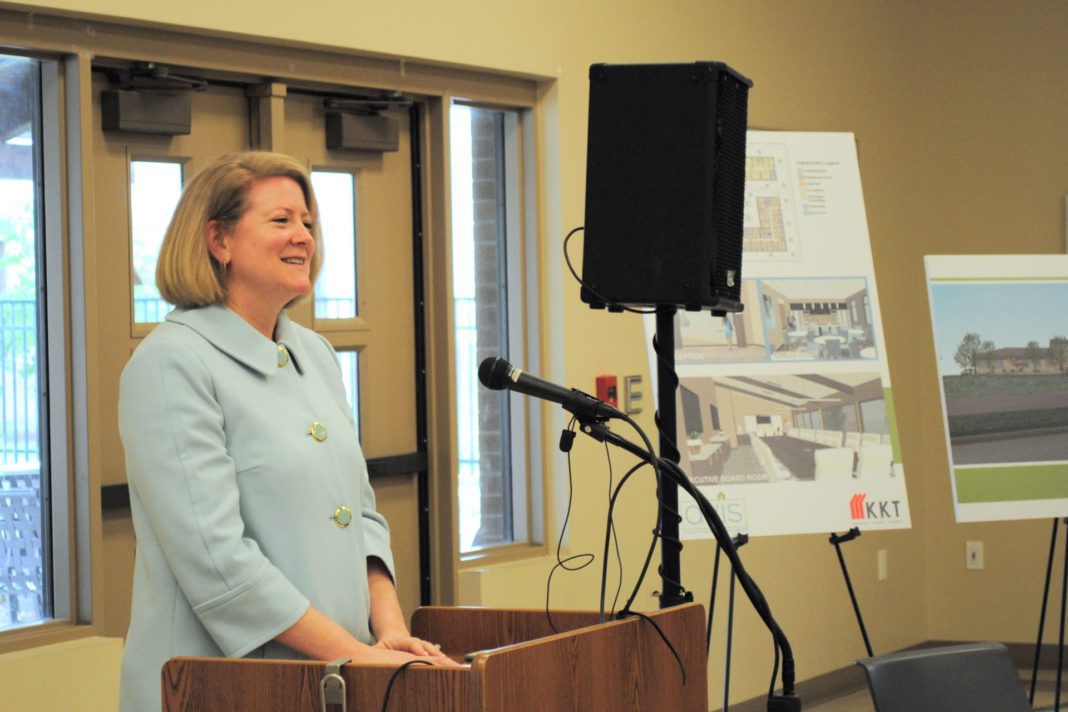Tracey Lyall’s devotion for providing love and support to domestic and sexual violence survivors started in 1990 while she was in college, acting as an advocate at the Domestic Violence Intervention Services (DVIS) emergency shelter.
“Seeing and working with families at the shelter was transformative,” she says. “It was then that [I] changed [my] major from business to psychology. The importance of anti-violence work resonated.”
After graduation, Lyall focused on supporting other community efforts surrounding homelessness. However, during those years, the work she did ignited her passion to care for domestic violence survivors. In 2007, she returned to DVIS … this time as the chief executive officer.
Her dedication to the cause has molded DVIS into the program it is today. Annually, the nonprofit helps more than 13,000 Oklahomans who have been impacted by domestic violence. The organization has grown to an agency of more than 100 employees. In addition, she and the DVIS board completed a $24 million capital campaign in 2018, which funded new facilities for each of DVIS’ programs – allowing the nonprofit to serve more survivors and their families in a sensitive, trauma-informed way.
Lyall’s goal to create safe, healthy families in Tulsa and ensure the cycles of violence end within those families has been a driving force in her career – especially to help the next generation heal and stop the abuse.
During the COVID-19 pandemic, DVIS continued to respond and provide assistance to survivors in need, but Lyall doesn’t think the center has seen the end of the pandemic’s impact. According to her, studies show increased rates of domestic violence and child abuse during and after significant stressors. Also, a few social factors that put people at greater risk of experiencing violence include reduced access to support during quarantining and social distancing, along with strained finances.
“We are focused on meeting the increased demand in this post-pandemic space,” she says. “While the reality is that we are working with a stretched workforce, we continue to prioritize self-care, diversity, equity and inclusion work, as we know that these are spaces that ensure we are providing the very best to any survivor that is seeking support.”
Domestic Violence:
The Numbers
Domestic violence is a pattern of abusive behaviors in which a partner in an intimate relationship attempts to gain power and control over the other. This could be a current partner or a former partner, and there is no such thing as a “typical victim.” It can happen to anyone at any time.
According to the World Population Review, 49.1% of Oklahoma women and 40.7% of Oklahoma men experience intimate partner physical violence, intimate partner rape, and/or intimate partner stalking in their lifetimes.
DVIS provides safe housing services; counseling for children, youth and adults; legal advocacy and representation; court advocacy; law enforcement advocacy; education and outreach; hospital advocacy; childcare; and batterers intervention.
If you’re experiencing domestic violence or want to help someone who is, DVIS has advocates available to assist 24 hours a day, seven days a week. They can help with safety planning, along with assisting on resources to meet a survivor’s needs. The 24-hour information and crisis line can be reached at 918-7-HELP-ME (918-743-5763). Additional information can be found at dvis.org or on the DVIS Facebook page.


























